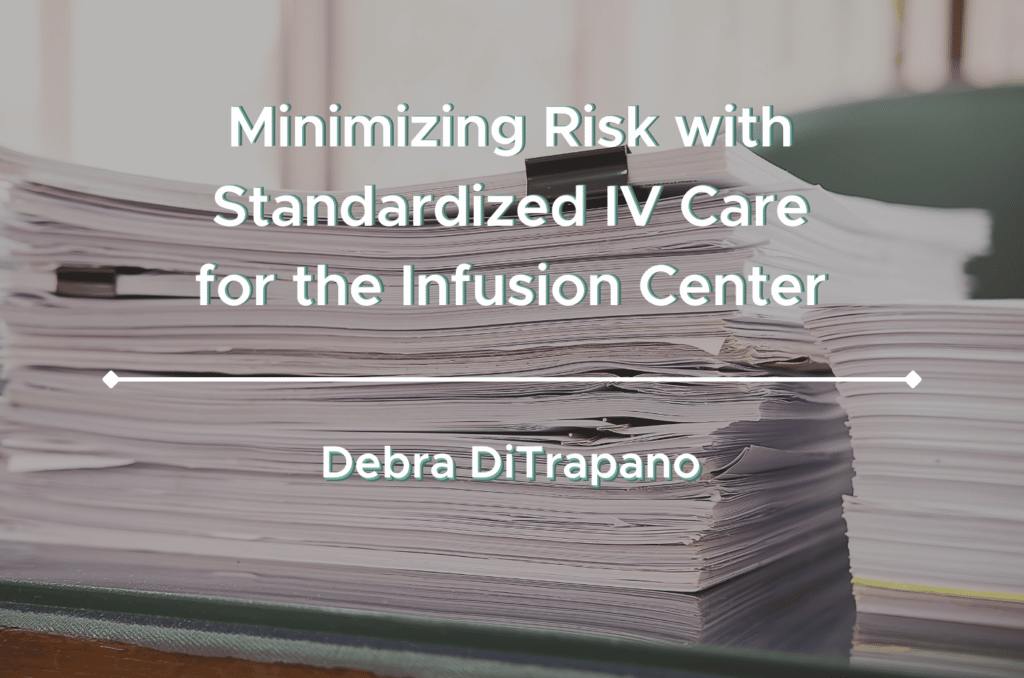In recent years there has been a plethora of new infusion and injection therapies flooding the healthcare market. These new therapies are giving patients with chronic illnesses a broader range of treatment options and providing them the opportunity to live their lives with fewer debilitating chronic symptoms.
As an Infusion Center Nurse Manager, with over 25 years of nursing experience, I find the surge of new treatment options to be mind blowing. I still remember when new drugs seemed to take years in development. They would go through a lengthy approval process, including clinical trials, before a new therapy would be released to market and finally become available for patients.
Currently, the speed at which new infusion/injection drugs are approved, gives nurses little time to research and learn the important care points of preparation, administration, patient response to therapy, and patient assessment.
In addition, the days of learning nursing from our more seasoned nurses, thru tradition, and one-on-one training are dwindling fast. We are all out there on the front lines learning together. This makes the availability of reliable evidence-based resources more important than ever.
We want to provide patients the best quality care, and to do that we need:
 Evidence based processes with quick links to resources ensure the information is credible, reliable, and up-to-date
Evidence based processes with quick links to resources ensure the information is credible, reliable, and up-to-date- Step-by-step instructions (including recommendations for all equipment needed) help me to prepare and administer the latest infusion/injection therapies
- Fast access to trustworthy and comprehensive information gives me confidence that I will do it right for my patients
- Pop-up calculators ensure that calculations are done correctly and fall within accepted parameters for the drug
Our practices before this were:
- Finding the time to research reliable information and learn the administration and preparation for IV medications was always challenging
- We would carry index cards and pocket notes to help remember the key care points for many IV medications prescribed for patients
- Keeping a paper binder up to date with all the requirements for each drug regimen was a constant struggle
- We often sought the help of a colleague with experience in preparing and administering a drug that was new to us
- Those of us not confident with math skills (myself included!) would often track down another nurse to double check any drug calculations
 These fragmented, inconsistent processes lead to wasted time, distractions, and exponentially increased the risk for medication errors.
These fragmented, inconsistent processes lead to wasted time, distractions, and exponentially increased the risk for medication errors.
Many of the highest risk medications are delivered by IV infusion. In fact, 61% of the most serious and life-threatening potential adverse drug events are IV drug related. IV administration often results in the most serious outcomes of medication errors.
The development of evidence based practices and standards of care are vital for successful outcomes in outpatient infusion centers. Training staff and keeping them up-to-date on the established guidelines is also imperative for success.





